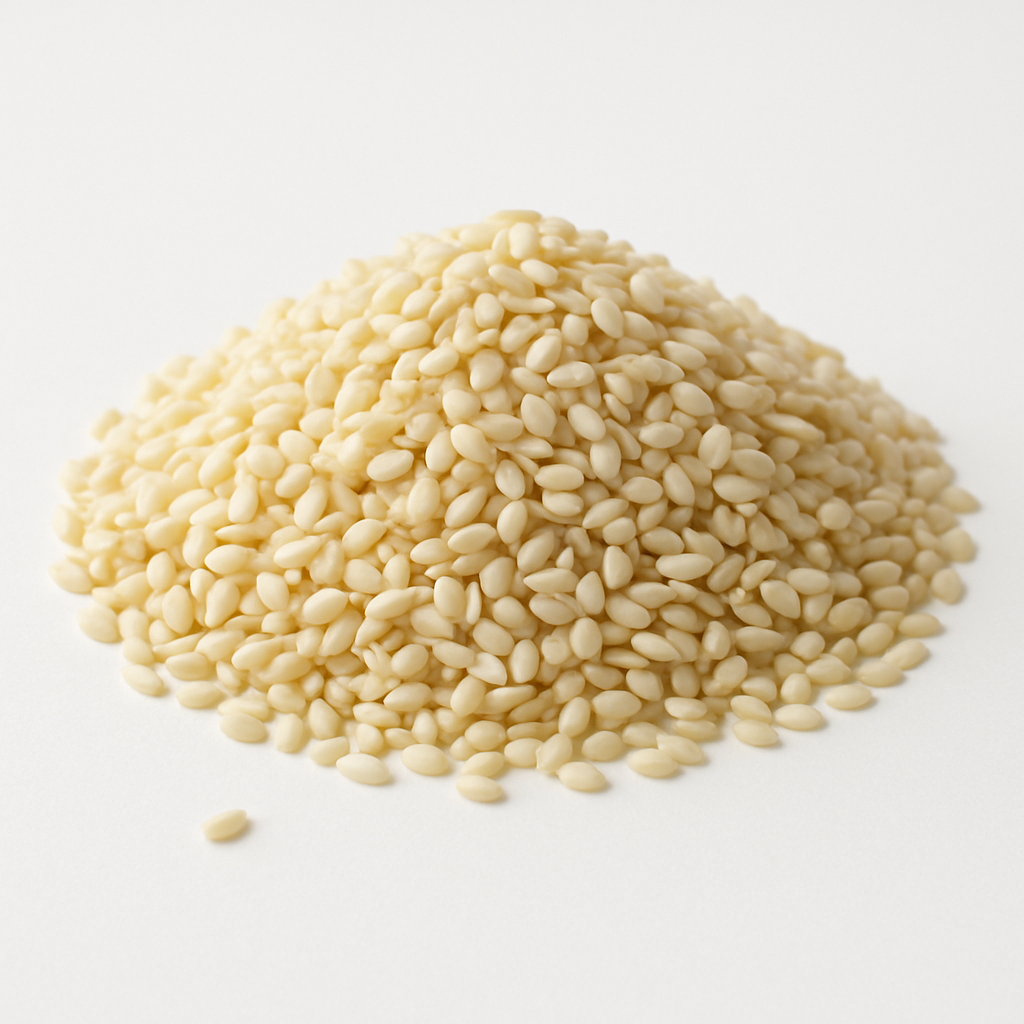Wadi
Sesame seeds
Sesame seeds
Couldn't load pickup availability
not technically a nut, but often considered one due to their nutritional profile.
Primary Uses:
1. Culinary uses:
- Sesame oil: used for cooking, frying, and as a salad dressing
- Tahini: a paste made from ground sesame seeds, used in dips, sauces, and dressings
- Sesame seeds: used as a topping for breads, crackers, and other baked goods
- Gomasio: a Japanese seasoning made from toasted sesame seeds and salt, used as a condiment for rice, vegetables, and other dishes
2. Flavoring uses:
- Sesame seeds: used to add a nutty, slightly sweet flavor to dishes
- Sesame oil: used to add a rich, nutty flavor to stir-fries, marinades, and dressings
- Tahini: used to add a creamy, nutty flavor to dips, sauces, and dressings
- Sesame paste: used as a flavoring in Middle Eastern and Asian dishes
3. Aroma uses:
- Sesame oil: used to add a nutty aroma to dishes
- Toasted sesame seeds: used to add a toasty, nutty aroma to dishes
- Sesame paste: used as a fragrant ingredient in Middle Eastern and Asian dishes
Other Uses:
1. Medicinal uses: Sesame seeds are believed to have various health benefits, including reducing inflammation, improving heart health, and aiding digestion.
2. Religious uses: Sesame seeds are used in various religious ceremonies and rituals, particularly in Hinduism and Buddhism.
3. Ornamental uses: Sesame seeds are often used as a decorative element in baked goods and other dishes.
4. Insect repellent: Sesame oil is believed to have insect-repelling properties and is used in some natural insect repellents.
5. Dyeing agent: Sesame seeds can be used to create a natural dye for fabrics and other materials.
6. Folklore uses: In some cultures, sesame seeds are believed to bring good luck and prosperity.
7. Culinary garnish: Sesame seeds are commonly used as a garnish in various dishes, particularly in Asian cuisine.
Caution:
1. Allergies: Sesame seeds can cause allergic reactions in some people, ranging from mild to severe.
2. High in calories: Sesame seeds are high in calories, which can be a disadvantage for people trying to lose weight or maintain a healthy weight.
3. High in fat: Sesame seeds are also high in fat, which can be a concern for people with high cholesterol or heart disease.
4. Oxalate content: Sesame seeds contain oxalates, which can contribute to the formation of kidney stones in some people.
5. Digestive issues: Some people may experience digestive issues such as bloating, gas, or diarrhea after consuming sesame seeds.
6. Contamination: Sesame seeds are often contaminated with bacteria or other harmful substances, which can pose a health risk if consumed.
7. Processing: Many sesame seeds are processed with chemicals or other additives, which can be harmful to health if consumed regularly.
Share


